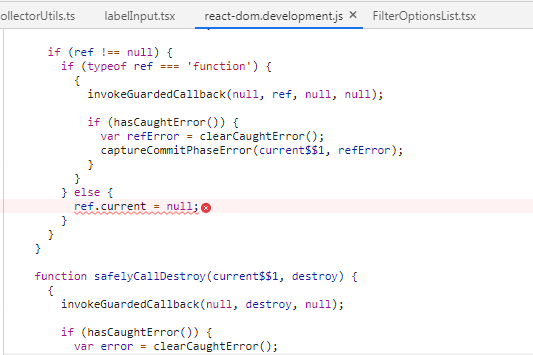The issue here is that atoms are are frozen by default (see the documentation) and a ref works by mutating the current property of an object.
You could prevent object freezing by passing dangerouslyAllowMutability: true.
export const refLinkState = atom({
key: 'refLink',
default: null ,
dangerouslyAllowMutability: true,
});
Note that this will only update all subscribers if the ref itself is replaced by another ref. If a ref consumer changes the current property, subscribers will not re-render because the ref object is still the same object.
You could solve this by not using a ref, but by passing the ref value directly into your shared state.
// without dangerouslyAllowMutability
export const refLinkState = atom({
key: 'refLink',
default: null ,
});
const Children = () => {
const [refLink, setRefLink] = useRecoilState(refLinkState);
return <input ref={setRefLink} />;
};
In the above scenario we've completely eliminated refs and instead store the DOM element in the recoil state without the ref wrapper.
However like the forward refs documentation mentions:
React components hide their implementation details, including their rendered output. Other components using FancyButton usually will not need to obtain a ref to the inner button DOM element. This is good because it prevents components from relying on each other’s DOM structure too much.
Without knowing much about the structure and what exactly you want to achieve, you could for example extract the relevant data in Child and store that in a shared state. But there is probably a better solution if we had more context.


someRefcome from inChildren? (Also: Please try to avoid posting code that doesn't actually represent what you're actually using, then later changing it.) – Mb